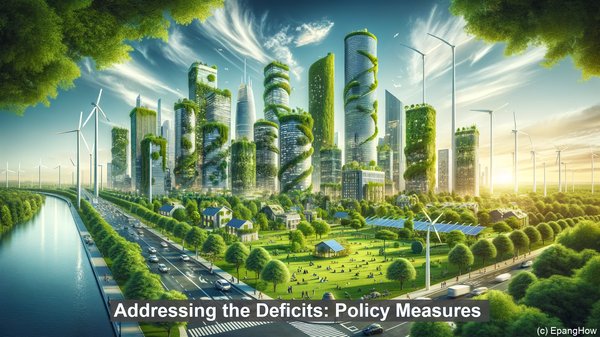Introduction: Deficits in the Economic Landscape
Hello everyone! In the realm of economics, the terms ‘budget deficit’ and ‘trade deficit’ are often heard. While they may sound similar, they represent distinct aspects of a nation’s financial standing. Today, we’ll delve into the nuances of these deficits, exploring their definitions, causes, and consequences. Let’s get started!
Budget Deficit: When Expenses Exceed Revenue
A budget deficit arises when a government’s spending surpasses its revenue in a given period. In other words, it’s the shortfall between what a government earns (through taxes, for instance) and what it spends. This deficit is typically financed by borrowing, which can lead to an increase in a nation’s debt. Budget deficits can occur due to various factors, such as economic downturns, increased public spending, or tax cuts. While deficits are not inherently negative, persistent and large deficits can have repercussions on a nation’s economy, including inflation and a higher debt burden.

Trade Deficit: The Imbalance in International Trade
On the other hand, a trade deficit refers to a situation where a nation’s imports exceed its exports. In simpler terms, it’s when a country buys more from other nations than it sells to them. This imbalance can occur due to factors like differences in production costs, exchange rates, or domestic demand. A trade deficit implies that a nation is relying on foreign goods to meet its needs, which can have implications for domestic industries and employment. While a trade deficit is often seen as a concern, it’s important to note that it also reflects a nation’s purchasing power and can be offset by other economic factors, such as foreign investments.
Interplay Between the Deficits: A Complex Relationship
While budget and trade deficits are distinct, they are not entirely independent. For instance, a budget deficit can influence a trade deficit. When a government increases its spending, it can lead to higher imports, contributing to a trade imbalance. Similarly, a trade deficit can impact a budget deficit. If a nation’s exports decrease, it can result in reduced revenue, potentially widening the budget deficit. Understanding these interconnections is crucial for policymakers, as addressing one deficit may involve considerations of the other.
Addressing the Deficits: Policy Measures
Governments employ various strategies to manage deficits. In the case of a budget deficit, measures can include reducing spending, increasing taxes, or a combination of both. On the trade front, policies may focus on promoting exports, such as through trade agreements or incentives for domestic industries. However, it’s essential to adopt a comprehensive approach, considering the broader economic landscape and potential repercussions of policy actions.

